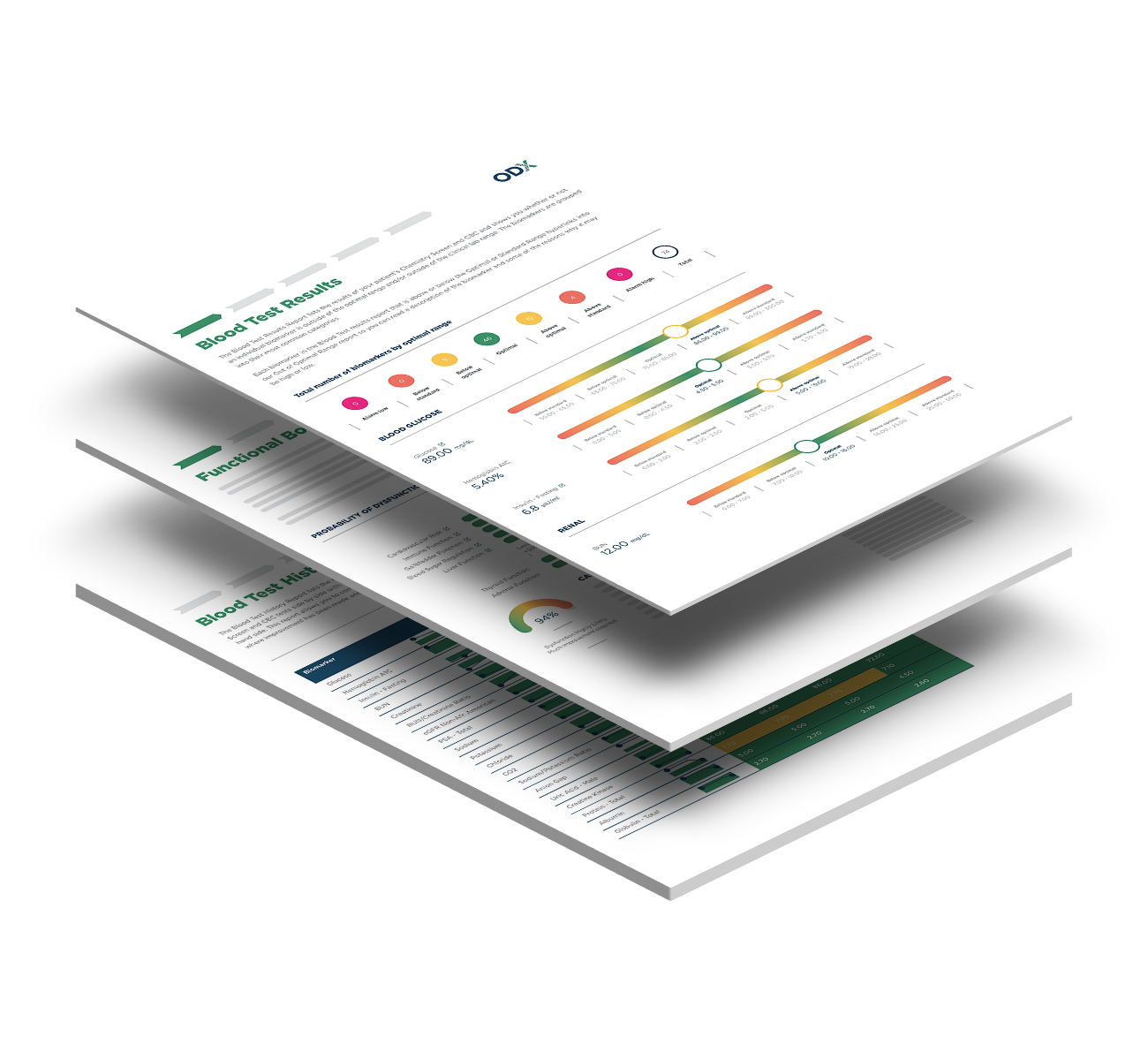Welcome to part 11 of the ODX Stress Biomarkers Series, the Optimal Takeaways. This post sums up major sources, biomarkers, and consequences of stress.
The ODX Stress Biomarkers Series
- Stress Part 1: A Quick Overview
- Stress Part 2: How Do We Get Stressed Out?
- Stress Part 3: The Physiology of Stress
- Stress Part 4: Hormonal Control of the Stress Response
- Stress Part 5: Identifying Stress
- Stress Part 6: Disorders Associated with Stress
- Stress Part 7: Biomarkers of Stress Overview
- Stress Part 8: Biomarkers of Stress, Individual Markers
- Stress Part 9: Addressing Stress: Can We Treat It or Beat It?
- Stress Part 10: Nutrition and Stress
- Stress Part 11: Optimal Takeaways
Stress - Optimal Takeaways
Tackling stress means not only addressing and regulating external stressors but modulating the internal response to stress.
Identify and address major stressors including
- Physical stressors such as nutrient insufficiencies, hormone imbalances, sleep deprivation, toxin exposure, abuse, or assault
- Situational/psychological stressors such as interpersonal conflicts, relationship difficulties, isolation, financial strain, legal troubles, becoming overwhelmed
- Life events such as catastrophic events, accidents, divorce, loss of a loved one, violence
The physiological changes associated with stress ultimately[1]
- Mobilize energy to maintain brain and muscle function
- Focus attention on the threat
- Prepare the body for fight or flight
- Modulate the immune system
- Decrease feeding, appetite, and reproductive physiology
- Reflect the General Adaptation Syndrome which is characterized by phases:
- Alarm
- Resistance
- Exhaustion
Chronic exposure to stress can eventually contribute to the following:
- Blood glucose dysregulation
- Hypertension
- Cardiovascular disease
- Obesity
- Inflammatory disorders
- Psychological disorders
- PTSD
- Cognitive decline
Main Biomarkers of Stress
Increased
- ACTH
- Aldosterone
- Antidiuretic hormone
- Cortisol
- Cortisol to DHEA ratio
- CRH
- Epinephrine and norepinephrine
- Glucagon
- Glucose
- Histamine
- Inflammatory cytokines
- Oxidative stress markers
- Uric acid
- White blood cells
Decreased
- Acetylcholine
- Albumin
- Bilirubin
- Growth hormone
- Insulin
- Reduced glutathione
- Secretory IgA
- TSH, T3, T4
Nutrition is key to increasing your resilience to stress
- Consume a healthy plant-based diet full of fresh fruits and vegetables, whole grains, legumes, nuts, seeds, herbs, and spices, along with high-quality protein and fats.
- Minimize highly processed foods, junk food, fast foods, trans fats, sweetened beverages, and concentrated sweets (unless homemade and healthy!).
- Pay close attention to micronutrient intake and supplement when needed, B vitamins and vitamin C are especially important.
- Consider botanicals or essential oils to help cope with stress and its negative effects.
- Maintain a healthy gut microbiome
- Hydrate with plenty of purified mineral-rich water
Stress management techniques are key to minimizing the negative effects of stress
- Deep breathing, meditation, yoga, progressive relaxation
- Social support, time management, mindfulness, music
- Healthy diet, balanced sleep routine, regular exercise, walking
- Take the time to connect with nature, walk in the woods, lie down in green pastures, Earthing/grounding
- Take a few deep breaths before each meal to help facilitate the “rest and digest” response
- Practice gratitude daily
Since stress is just about everywhere, resilience to stress must be everywhere as well. Identifying stressors is the first step in meeting stress head on. Then, active and deliberate measures must be taken to minimize the negative consequences of prolonged stress.
Nutrition support, exercise, and mindfulness are the foundations for healthy stress management and recovery... these should be incorporated into selfcare routines regularly.
[1] Singh, K. "Nutrient and stress management." J Nutr Food Sci 6.4 (2016): 528.






